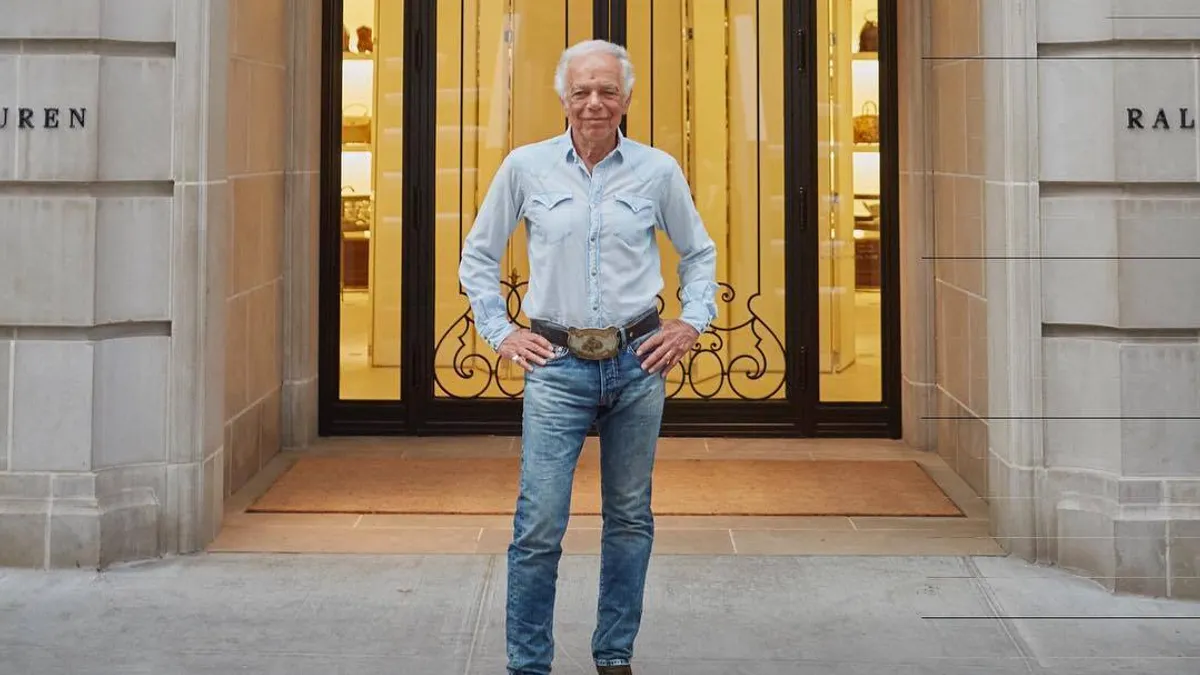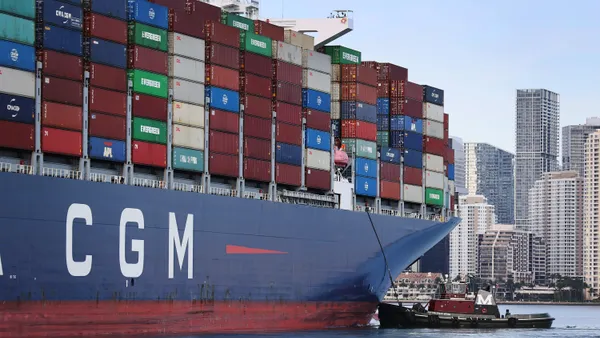Dive Brief:
- Ralph Lauren committed to sustainably sourcing 100% of its cotton and viscose and using 100% recycled polyester by 2025 as part of a new sustainability strategy released Wednesday.
- Beyond raw materials and product design, the company made commitments and set goals for carbon emissions, chemical management, water use, waste management, recyclable packaging and animal welfare.
- In a letter to stakeholders, Chief Creative Officer Ralph Lauren and Chief Executive Officer Patrice Louvet wrote the company had spent the last year working to understand the social and environmental impact of the business, which guided the new goals.
Dive Insight:
Commitments regarding the sustainable sourcing of key fabrics are becoming more and more common among apparel brands. Just last week Gap committed to a sourcing goal for sustainable cotton similar to Ralph Lauren's and H&M pledged to reach a similar bar by 2020. But it's rare for a brand to make sustainability commitments on so many diverse materials all at once.
Ralph Lauren's goals, most of which have the deadline of 2025, cover cotton, polyester, viscose, down, wool, leather and cashmere. As cotton represents 78% of the total materials used by Ralph Lauren, that sourcing shift will be the most impactful by far.
Further, the plan describes a change in process and culture for Ralph Lauren designers who will receive training on circular design (design intended to extend the life cycle of a garment and reduce waste) along with scrutinizing unused fabric from past seasons to avoid dead stock and waste headed to landfills.
Based on these goals, Ralph Lauren is going to have a very different supplier base in 2025 than it does now — though the report does not go into detail on how far the brand is from these commitments today.
The goals set out for the company's fabric sourcing are:
- 100% sustainably sourced cotton by 2025 (defined as Better Cotton Initiative certified, organic, recycled and transitional)
- 100% recycled polyester by 2025
- 100% Canopy Style verified viscose by 2025
- 100% Responsible Down Standard or Traceable Down Standard certified down by 2023
- 100% recycled or Responsible Wool Standard certified wool by 2025
- 100% Leather Working Group certified by 2025
- 100% Sustainable Fibre Alliance certified cashmere by 2025
When asked if supply chains for recycled and sustainable materials are robust enough to support Ralph Lauren's full operation today, a spokesperson told Supply Chain Dive: "We are working with partners to ensure a robust supply chain today and into the future."
In terms of carbon emissions, which largely concern the company's manufacturing, warehouses, and office footprint, along with freight and logistics, Ralph Lauren is still working on developing firm standards, while demonstrating some awareness of the largest contributors to greenhouse gases within in its supply chain.
According to the report, Ralph Lauren will set science-based carbon reduction targets by 2020 and lay out a timeline for conversion to 100% renewable energy at owned and operated facilities this year. Ahead of setting these goals, the company has already begun work to reduce air freight — the "most carbon-intensive and costly of our shipping methods" according to the report. For Ralph Lauren's own shipments, air freight represented 5.8% of the total in FY2019, compared to 9.7% in FY2018 and 6% on FY 2017.













